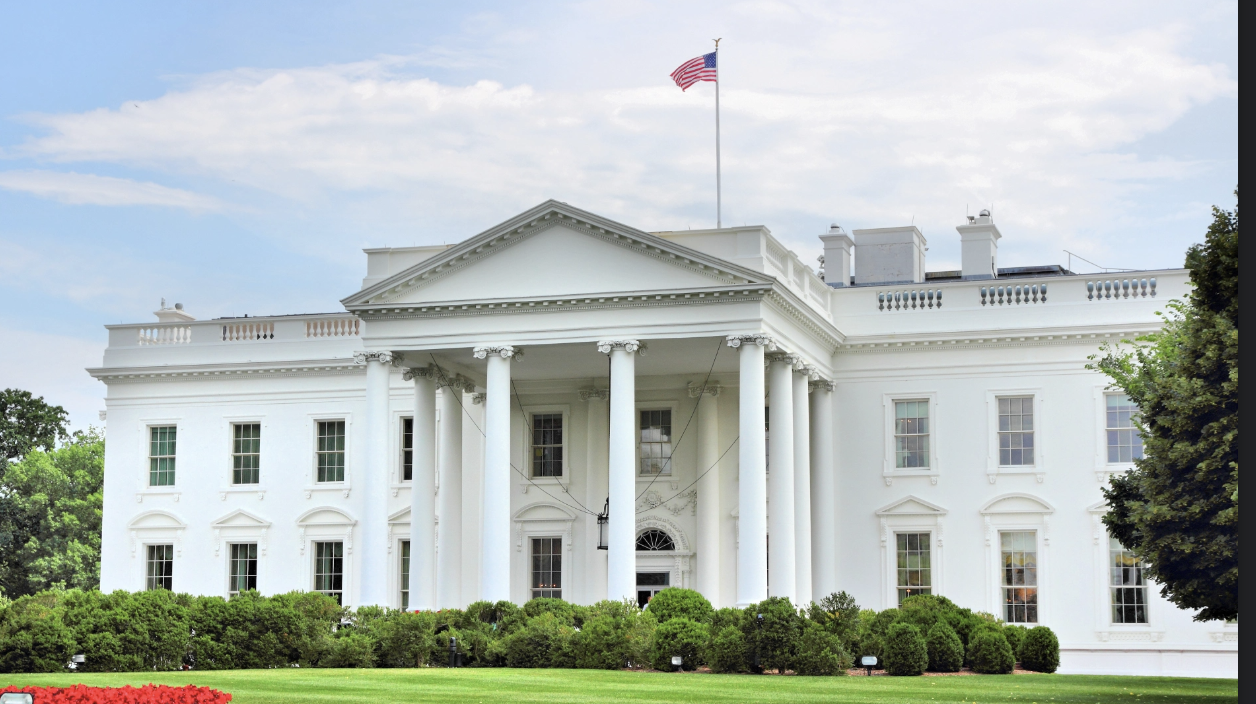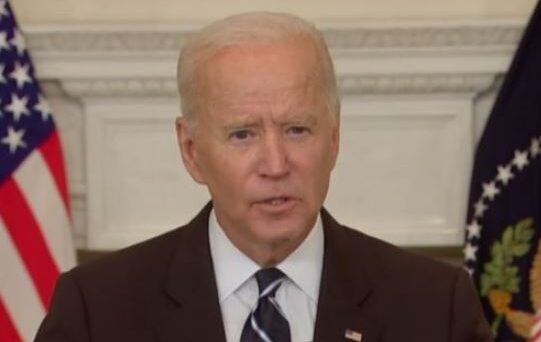
WASHINGTON, D.C. – On Sunday the following transcript was released by the White House between President Biden and the press corps regarding a pending budget agreement that would prevent the so-called national “debt default.”

THE PRESIDENT: I’m sorry to keep you waiting, but we’ve got good news. We’ve got a — I just spoke with Speaker McCarthy, and we’ve reached a bipartisan budget agreement that we’re ready to move to the full Congress.
And I think it’s a really important step forward — excuse me — (clears throat) — and it takes the threat of catastrophic default off the table; it protects our hard-earned and historic economic recovery.
And the agreement also represents a compromise, which means no one got everything they want. But that’s the responsibility of governing.
And the — this is a deal that’s good news for, I believe you’ll see, for the American people.
The agreement prevents the worst possible crisis: a default for the first time in our nation’s history — an economic recession, retirement accounts devastated, millions of jobs lost.
It also protects key priorities and accomplishments and values that congressional Democrats and I have fought long for — long and hard for.
Investing in America’s agenda — that’s creating goods jobs in communities throughout the country. It protects Social Security, Medicare, and veterans, and so much more.
The Speaker and I made clear from the start that the only way forward was a bipartisan agreement.
That agreement now goes to the United States House and to the Senate. And I strongly urge both — both chambers to pass that agreement.
Let’s keep moving forward on meeting our obligations and building the strongest economy in the history of the world.
I’ll take a few questions.
Q: Mr. President, you said at the beginning that the debt ceiling was not negotiable. Isn’t that what you’ve just done here? And isn’t that what you’ve (inaudible)?
THE PRESIDENT: You guys — look, we’re not negotiating the debt ceiling. Here’s the deal: They passed — they said they’re going to — if they pass the debt ceiling, and they said they’d only do it on a condition that it have all these cuts in it. I said, “I’m not going to do that. You pass the debt ceiling, period. I’ll negotiate with you on the cuts — what you say what’s going to happen, what the budget is going to look like.”
That’s what we are negotiating in order to get to them deciding that they’re going to go along with a new debt ceiling, meaning that it’s not attached. Something totally different attached that wasn’t attached before.
But if you want to try to make it look like I made some compromise on the debt ceiling, I didn’t. I made a compromise on the budget.
Q But that’s what they wanted, is you to make a compromise on the budget, and that’s what you’ve done, even though you haven’t gone as far as they wanted. Isn’t that right?
THE PRESIDENT: Sure. Yeah. Well — (laughs) — can you think of an alternative?
Q Mr. President, what do you say to members of your own party who say you’ve made too many concessions in this deal?
THE PRESIDENT: They’ll find I didn’t.
Q Mr. President, on your allies and adversaries to America, would you be willing to say about what you think this process said to those adversaries and allies? You have a deal now, but what does the process say? What does the struggle say to them?
THE PRESIDENT: Well, it says we’ve been through this more than once, and it’s just the nature of the way we handle the deficit and handle whether we’re going to, each year, going to pay our debts. And it’s happened more than once. It will probably happen again. But it’s not going to happen at least for another two years here. And I don’t think beyond — I think beyond that, it won’t either.
Q Mr. President, do you think it’s time for the U.S. to get rid of the debt limit? That this is — you know, for that — the reason you just laid out?
THE PRESIDENT: No, I think it would cause more controversy getting rid of the debt limit, although I do — I am exploring the idea that we would at a later date, a year or two from now, decide whether or not the 14th Amendment — how that actually would impact on whether or not you need to reduce the debt limit every year. But that’s another day.
Thank you all.
Q Mr. President, do you believe Speaker McCarthy has the votes? And did he negotiate in good faith?
THE PRESIDENT: I think he negotiated with me in good faith. He kept his word. He said what he would do. He did what he said he’d do. And I have no idea whether he has the votes. I expect he does, or I don’t think he would have made the agreement.
Q Mr. President, do you have a comment on the elections in Turkey? Have you spoken with President Erdoğan?
THE PRESIDENT: I have not spoken to him yet.
Q Some of your Democratic colleagues are saying that this policy will lead some people to go hungry. What is your response to that?
THE PRESIDENT: It’s a ridiculous acer- — assertion.
Q Do you wish you had started these negotiations sooner?
THE PRESIDENT: No, it wouldn’t have made any difference.

Also on Sunday U.S. Sen. Jeanne Shaheen, D-NH, issued this statement in response to the announced bipartisan agreement in principle between the White House and Congressional Republicans:
“I’m glad that Democrats and Republicans reached a bipartisan compromise in principle to avert what would have been a catastrophic default for our nation, with significant ramifications for New Hampshire. I am particularly relieved for New Hampshire’s working families and small businesses, who often rely on benefits and resources that would have been delayed or even cut off. During my statewide tour this past week, I spoke with Granite Staters across the spectrum who shared their fears about the devastating impacts a default would have caused. While this deal isn’t perfect, no compromise is – the fundamental goal was to prevent a catastrophic default on the United States’ existing financial obligations and to protect the social safety net for New Hampshire families. This agreement in principle achieves those goals.
“At a time when our adversaries are constantly looking for ways to undermine faith in democracies, the United States must preserve our reputation and strength on the world stage. The infighting we have seen over the past months imperils that standing, weakens our position and emboldens their efforts.
“Confidence in our economy is key to this goal, and we should be working together to protect and enhance our status as a global economic leader. This includes preserving the U.S. Dollar as the world’s reserve currency. While I am grateful a compromise in principle has been reached, it never should have come to this. It is unacceptable to manufacture a crisis that uses the American people as pawns in a political game and gambles with our economy like it’s a bargaining chip. Those actions must end. We need to remove the threat of the debt limit to prevent this in the future, or partisan obstruction will continue to hold our economy hostage.”







